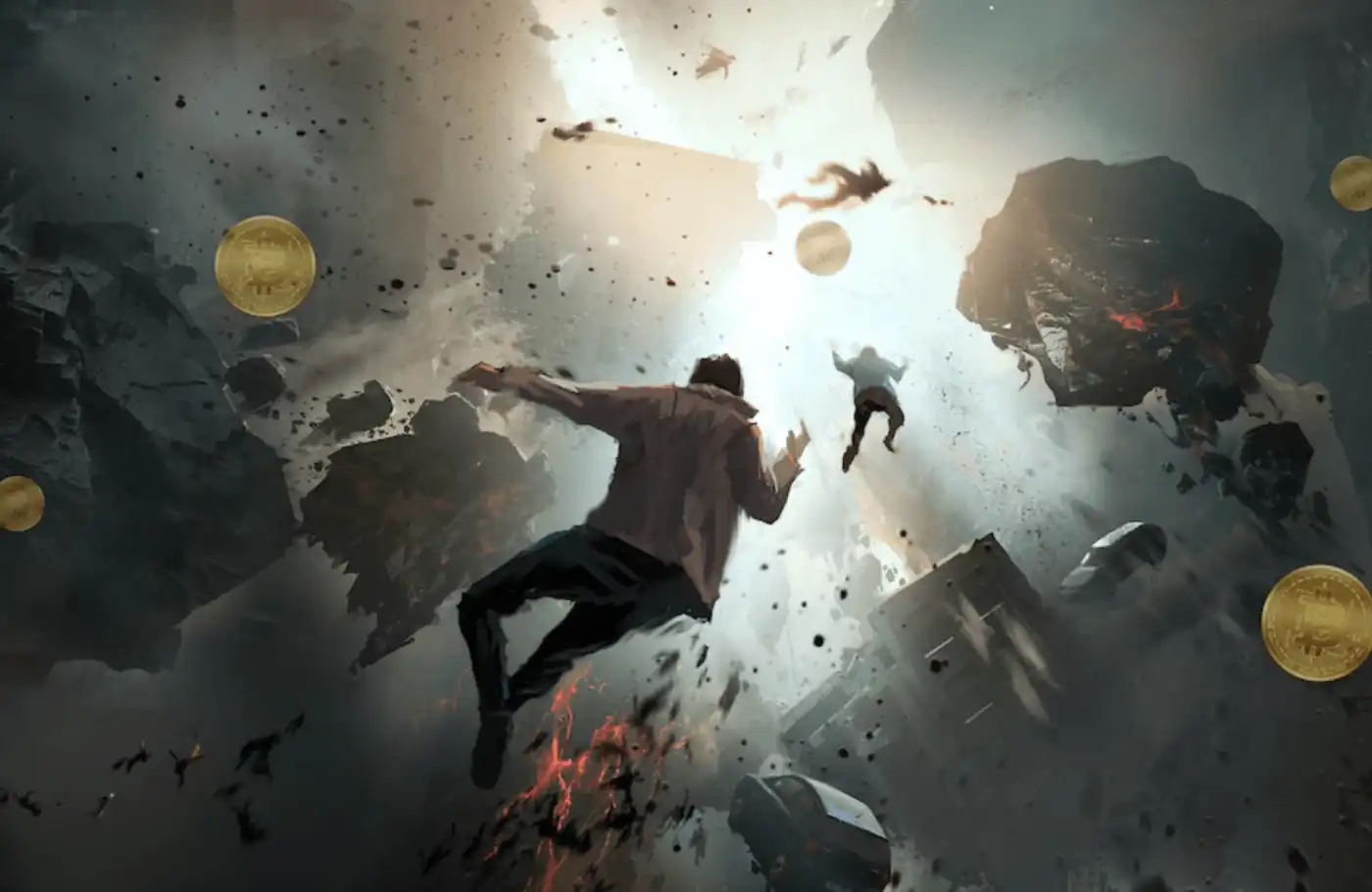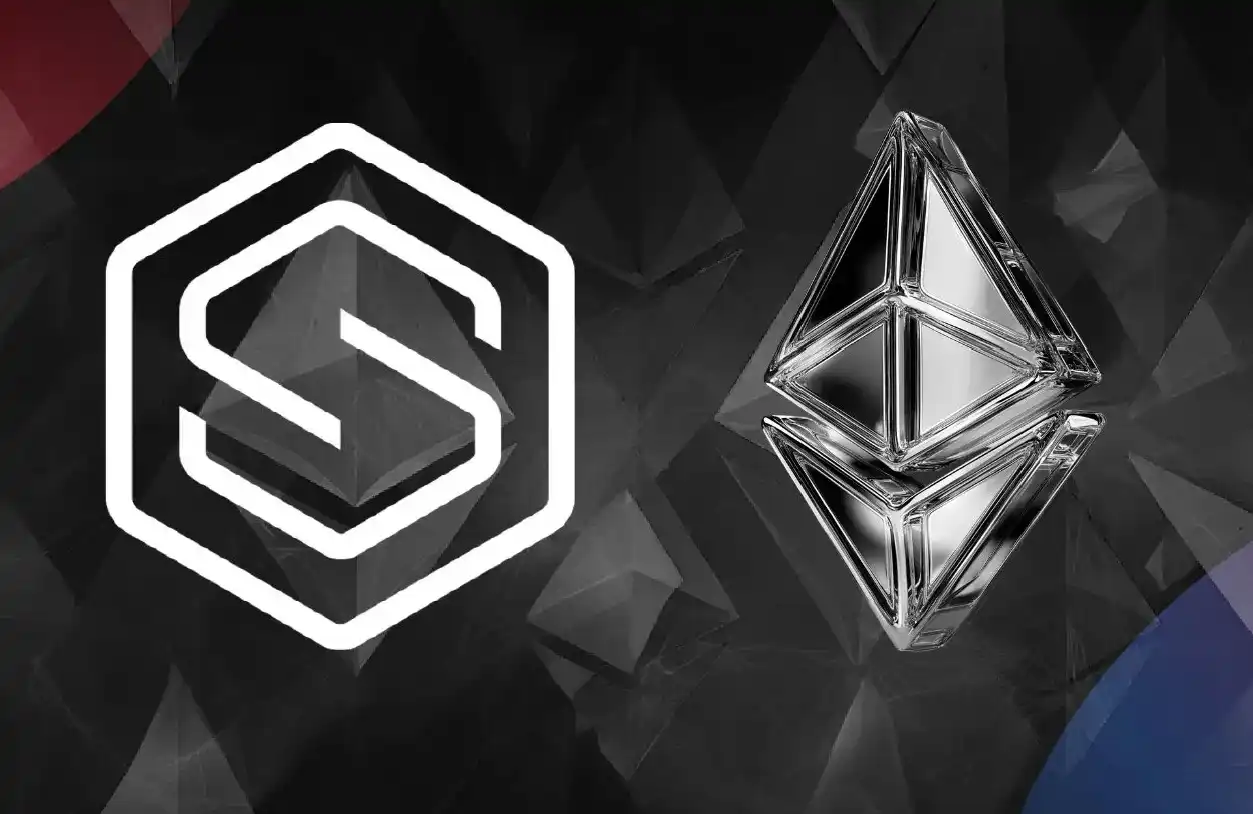Interview with Sui Founder: Well-funded and No Need for New Round of Financing So Far.
Original title: "Exclusive interview with Evan Cheng, founder of public chain Sui: No plans for Series C financing, encryption start-ups squeezed by AI"
Source: Forkast
Translated by: PANews
Introduction
FTX bankruptcy, crypto-friendly bank bankruptcy, and AI taking away part of the funding for crypto startups amid various events. Given these circumstances, how does Sui founder Evan Cheng view the current market?
According to Evan Cheng, the founder of Mysten Labs, the development organization behind Sui, following the collapse of FTX, blockchain and cryptocurrency startups are struggling to raise funds, while artificial intelligence is now receiving a larger share of venture capital funding.
Despite the many challenges, Cheng believes that this situation provides an opportunity for developers to create a transparent and open infrastructure. However, late-stage funding for startups has become increasingly difficult, and only exceptional companies can receive support.
During an interview with Forkast, Cheng explained the challenges facing the blockchain industry, the potential to support Web3 developers, and the sustainability challenges of Play-to-earn games.
Interview transcript:
Angie Lau (Editor-in-Chief of Forkast): Many people know about Mysten Labs, which has received a lot of investment and has also experienced events such as the FTX scandal. What has the experience been like in the past few months?
Cheng: The FTX incident is not acceptable. There are various opinions and concerns surrounding this incident. However, it needs to be clarified that we have not been affected financially by FTX's participation in the $300 million B round financing. We hold only cash or bank equivalents, and our funds are very safe. Our team is quite experienced, and we know what we want to do. We have never relied too much on our investor partners to meet critical needs such as listing. (PANews Note: Recently, Mysten Labs paid $96 million to repurchase FTX's equity, which includes all the warrants for FTX's purchase of Sui tokens.)
Angie Lau (Editor-in-Chief of Forkast): It is now 2023 and the FTX incident still has an impact on the entire ecosystem. However, people are still very interested in the cryptocurrency industry. I hear a lot of conversations around me about how blockchain technology can solve real-world problems, including discussions with experts, investors, and policymakers about topics such as sustainable growth, trust, and transparency. It really feels like the focus has returned to the technical issues that many industry insiders are concerned about.
Cheng: I hope it has always been there. Previously, infrastructure and technology hindered development, such as some problems in the underlying layer. In the previous waves dominated by narration, some things could not be done or were difficult to do. But every time the wave dissipates, people will look around and ask, what achievements has the industry made? Maybe just some concepts? What will happen? What can be done? What are the benefits? These have not been verified. There is also the NFT market, which was very lively and many people entered, but then disappeared. Most people only observe trading or speculative activities. It is very difficult to build a truly practical product that has a real impact on consumers. In view of this, it is difficult for the blockchain industry to sustain.
Lau: I completely agree with your point of view. This speculative trading has indeed caused the entire industry to inflate. Even after the Terra-Luna collapse, the transparency of data in this industry is still not ideal. Without good infrastructure services and indexes, it is really difficult to distinguish value. This is the problem we are considering in terms of infrastructure. I am curious about your thoughts.
Cheng: We believe that infrastructure is "what do developers need?" Ultimately, the blockchain platform is a developer platform. What developers are trying to solve goes back to the spirit behind Web3. People intuitively understand that you can easily transfer things between parties by packaging them in tokens. Web3 is great for financial products, but its significance goes far beyond that.
If you take a look at today's internet companies, you will find that they are basically built on top of users' work. For example, Instagram, Facebook, Twitter, YouTube, etc. These big internet companies have extracted a lot of profits from them. More importantly, these companies lack transparency and fairness. If you understand this, you understand the spirit of Web3. What we are trying to provide is an infrastructure that allows developers to challenge existing enterprises. What will the next content sharing website like YouTube and Instagram look like? How can we make it more fair, especially for creators, and how can they fairly know the value of their work? Can they freely and flexibly use their assets? This is the key.
Blockchain will essentially become a great open database, a medium for creating and controlling assets. Smart contracts should provide many functions. Centralized entities should provide custody of assets and facilitate transactions. With these, there will be a more fair competitive environment. But it is very difficult to challenge those internet giants now.
Lau: Are investment institutions affected by the shift from blockchain to AI?
Cheng: What we see in the market today is that it is much more difficult for start-up companies in this field, and even in the software industry, to raise funds. Based on my observation, early-stage funding still exists, but valuations have been affected. However, once it reaches the later stages of Series A and Series B, it becomes very difficult to obtain funding. It must be an outstanding start-up company to obtain funding, unless you are currently in the bubble of generative AI, otherwise any start-up company raising funds will be much more difficult. AI now receives a larger share of venture capital funding.
Lau: When did you enter the blockchain industry?
Cheng: I have been working in the technology industry for over 20 years. I worked at Apple for 10 years, where I developed some important technologies that are now used in almost all smart devices today. The focus of my career has always been to drive technology forward, which is the only thing that truly drives me. Around 2016, I started paying attention to blockchain and developed several projects at Apple and then at Facebook. By 2018, I had the opportunity to do my own thing during the startup phase. Facebook also had this ambition to launch the so-called Libra project at the time. I thought this was a great opportunity for me, so I focused more on learning in that project. My team developed the Move programming language and everything related to it. There are some very dry and rigorous technologies involved, such as cryptography, which involves a lot of system design and consensus. Many of these things were completed during the three and a half years that I led the company's R&D department.
At the end of 2021, when the project was not progressing smoothly, I decided to leave. If you have great ideas, you can't wait for someone else to turn them into reality. It's best to come out and do it yourself.
Lau: This is an incredible experience. I noticed that many people came from Libra or Diem, Dante Disparte, the Chief Strategy Officer of Circle, yourself, and many others are still in this field. This should be a very painful experience, watching a technology that you are building and truly investing in, die due to policy and politics as a professional.
How do you bring all of these onto Mysten?
Cheng: Hope and excitement still exist, and we have seen a lot of developer activities. In fact, we have seen a lot of more mature developer activities. Before entering this field and building products, they have already built products that serve hundreds of thousands or millions of customers. This is the exciting part and also in line with what we are striving to do. They will become younger, smaller, more flexible, more experimental teams, trying new ideas, but many of them will fail. Some of them will succeed, and our foundation will support them. Although the bear market has many unfavorable factors, we have also seen many great things.
Lau: You are building a Layer 1 blockchain network, Sui. In your own words, it will achieve a leap in blockchain functionality. How is Sui different from Ethereum?
Cheng: Nowadays, blockchain has been upgraded to track the movement of static assets. The first principle we built with Sui is that every object representing an asset can track the history of its state changes. The blockchain model actually breaks the ownership model. There is a smart contract that sells me a virtual car, but I can use another smart contract that meets the same specifications to provide services because they provide better services. This is about the ownership part.
Another question is, when it comes to composability, can you really combine things if you can't control the assets? The smart contract that creates NFTs still has complete control over them. How do you access the data in a smart contract? Take Bored Ape as an example. Is it possible for someone else to use Bored Ape? Or if you want to combine two products from different companies, would the product builders allow it? Even if you are willing, it may not be possible. When your actual data is in a private database instead of on-chain, updating these assets can be very expensive. Do you really have interoperability? Do you really have composability? Can you really have a program to replace the middleman and execute this function autonomously?
Lau: We are in a dilemma about this technology. I would like to know more about your thoughts on Web3 games.
Cheng: Actually, what I mean is that there are many potential practical tools or things to try. Let's focus on games. Let me give you an example. Suppose there is a multiplayer game with many different players, all of whom have the same magic sword. A famous game anchor has a magic sword that is used to kill the final boss. If you want to represent it as an NFT, then its value should be much higher than that of ordinary players, who may have only killed a few minions. The value of the magic sword is not only "this is a sword, level ten". It is also history, what achievements it has achieved. This history makes them more valuable. If you think about it carefully, you will understand why many game companies are excited about this. This is something that is truly valuable and belongs to consumers.
If I have an e-sports game, I want to publish all the results on the chain. Blockchain can make the history of every role involved more transparent and trustworthy. This is the significance of blockchain, without worrying about cheating. You can use currency within the game, or use currency in the market, you can do all these things, but that's the exciting part.
When you are doing something new and different, that's where the key lies. If you simply copy what has been successful in the past, there is usually no breakthrough.
Lau: You have said that P2E is not sustainable. Why do you think so?
Cheng: Play-to-Earn is a very interesting experiment. How to reward players who put in sweat and time for the game? The general concept of Play-to-Earn is not wrong, but it is unsustainable. Players want to constantly earn money, so they mint more and more tokens, until they destroy the ecosystem by minting too many tokens. You know what happens when you print too much money.
Our job is to share some ideas and cases, and show that this is something you can do. There are some things you might be interested in. We made a fun game that shows the true meaning of composition to people. Before we realized this, another startup said, "Well, if you use our prediction market during the World Cup and you get it right, you'll get a small flag representing that country." They followed an open standard. This is just a real thing, but it shows that this is composable. It used to be impossible and completely disallowed.
Lau: The Wave 2 testnet has recently gone live. It is expected that the mainnet will be launched in the first quarter of this year. Are you on track with your plans?
Cheng: One interesting feature of the Sui blockchain is to provide this kind of flexibility and stability of gas fees for end users, even if token prices are unstable. Many things are still in testing, and we will only release them when we are very, very ready, whether it is at the end of the first quarter or the second quarter. Not just us, all of our partners will feel ready. We also hope to launch when there is a clear utility on the chain.
Lau: The last question, what do you think will happen to the blockchain industry in 2023?
Cheng: Sui will change a lot of things. We have worked hard on some very different things. We don't want to do the basic things that other blockchains have already done or designed. We want to see how we can go further and truly solve developers' problems. We believe we can do it. This is very exciting for us. Obviously, we should be excited about a lot of things our partners will launch in 2023.
Lau: Will you be conducting Series C financing?
Cheng: We don't need it. We have many years of operating funds. There are no plans at the moment. So far, we have no need or consideration for another round of financing.
Original article link
Welcome to join the official BlockBeats community:
Telegram Subscription Group: https://t.me/theblockbeats
Telegram Discussion Group: https://t.me/BlockBeats_App
Official Twitter Account: https://twitter.com/BlockBeatsAsia
 Forum
Forum OPRR
OPRR Finance
Finance
 Specials
Specials
 On-chain Eco
On-chain Eco
 Entry
Entry
 Podcasts
Podcasts
 Activities
Activities








